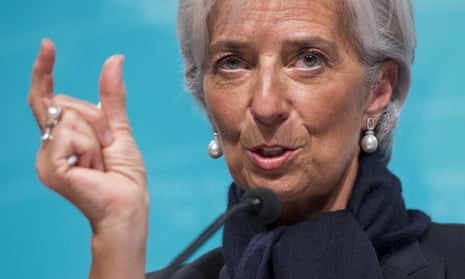“You’ve got to ask yourself one question. Do I feel lucky? Well, do ya, punk?” The lines spoken by Clint Eastwood in Dirty Harry sprang to mind when the International Monetary Fund (IMF) announced that it had called its Greek negotiating team home from talks in Brussels.
The IMF’s message was short and brutal. There were still major differences between Greece and its creditors. There was no progress in narrowing those differences. The two sides were well away from an agreement.
So much, then, for the talk earlier this week that a deal is close. Shares across Europe surged on hopes that a resolution to the crisis was at hand, but that optimism was punctured by the news from Washington.
The IMF, clearly, has had enough. It was unimpressed by Greece’s decision to bundle up all four of the debt repayments due this month and is frustrated by the unwillingness of Alexis Tsipras, the Greek prime minister, to cross its two “red line” issues – pensions and labour-market reform.
This, then, is the IMF holding the gun to Alexis Tsipras’s head. It feels like a pivotal moment, the point where the creditors are saying “take it or leave it” and the Greeks have to decide whether the IMF really means it.
Up until now, the view in Athens has been that the troika – made up of the IMF, the European Central Bank and the European commission – has been bluffing. The view has been that there is always room for a bit more haggling, always time to cut a better deal that would avoid the need to make the changes to pensions, VAT and collective bargaining being demanded in exchange for fresh financial assistance.
Greece has reached this conclusion for a number of reasons. It thinks European politicians will be wary of anything that might push Greece out of the single currency, because that would be a setback to the idea that Europe only ever moved forward. It believes that Angela Merkel will be willing to compromise for fear that a Grexit would push Tsipras into the willing arms of Vladimir Putin. And it is convinced that the reforms being demanded by the troika are wrong-headed and will impose more pain on a population that has suffered enough.
For their part, the creditors say Greece is not serious about reform, with the IMF noting that the Greek government is contributing 10% of GDP to pensions against an EU average of 2%. Put simply, they know Greece is running out of money and wants to stay in the euro.
They are fed up with Tsipras acting like he is the one holding the .44 Magnum and they are threatening to pull the trigger.
This movie climaxes next week.

Comments (…)
Sign in or create your Guardian account to join the discussion